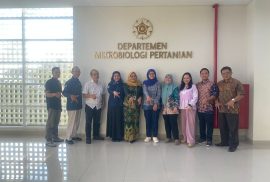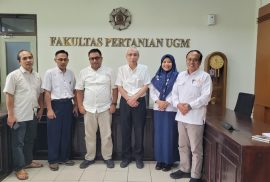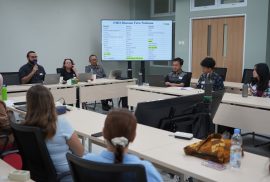The Student Resource Development Department (PSDM) together with the PERMAHAMI Executive Board successfully organized the PERMAHAMI Writing Program 2025 on Sunday, August 31, 2025, from 08.00 to 14.00 WIB. This program was designed as a solution to the challenges faced by students in academic writing, particularly in finding reliable and relevant scientific journals, citing sources properly, and compiling bibliographies according to the Faculty of Agriculture’s thesis writing guidelines.
The event began with an introduction to the department and study program delivered by the Head of Department and the Head of the Microbiology Study Program. It was then followed by a session with invited speakers, covering effective strategies for finding scientific journals, proper citation techniques, the structure of laboratory reports, and the correct way to compile bibliographies in accordance with academic rules.










